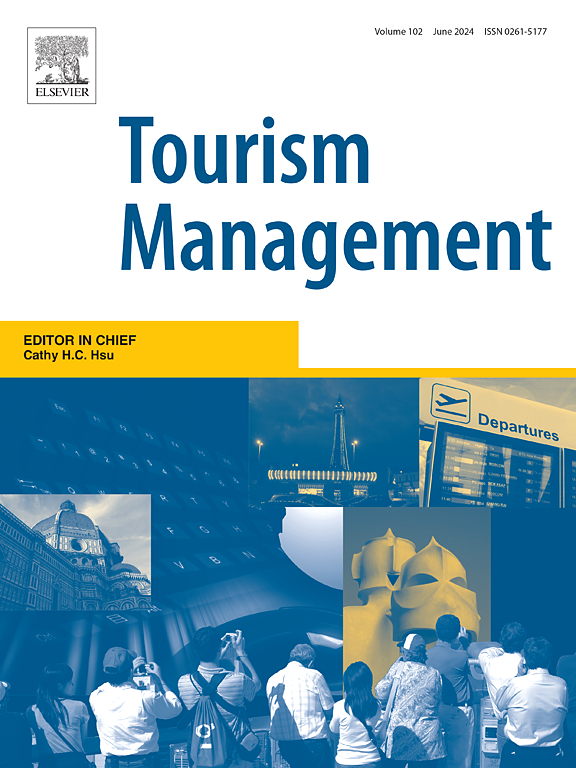什么是很酷的餐厅?理解、衡量和利用餐厅的凉爽度
IF 12.4
1区 管理学
Q1 ENVIRONMENTAL STUDIES
引用次数: 0
摘要
餐馆在竞争激烈的市场中经营,迫使他们区分自己。使用凉爽是一种新颖的策略。虽然文献已经开始调查人、品牌和城市的酷,但餐馆的复杂性及其内在的人为因素要求进一步研究是什么让餐馆变得酷。我们概念化餐厅酷,并根据经验确定其构成特征。我们发现酷的餐厅是原创的、正宗的、热情的、有目的的、公共的。我们开发了一种简约而可靠的餐馆酷度测量方法,并表明餐馆酷度显著影响与消费者态度和意图相关的下游变量(即自助餐厅联系、信任和情感依恋)。此外,我们还通过实验证明,餐厅冷静可以增强餐厅服务失败的恢复,包括归因、失败管理感知、恢复满意度和宽恕。我们的研究结果揭示了与其他环境相比,餐馆凉爽的不同特征,凉爽对餐馆有至关重要的影响。本文章由计算机程序翻译,如有差异,请以英文原文为准。
What is a cool restaurant? Understanding, measuring, and leveraging coolness for restaurants
Restaurants operate in competitive markets, forcing them to differentiate themselves. The use of coolness represents a novel tactic to do so. Although the literature has started to investigate coolness in people, brands, and cities, the complex nature of restaurants and their inherent human factor calls for further research on what makes restaurants cool. We conceptualize restaurant coolness and identify its constituent features empirically. We find that cool restaurants are original, authentic, welcoming, purposeful, and communal. We develop a parsimonious and reliable measure of restaurant coolness and show that restaurant coolness significantly influences relevant downstream variables related to consumers' attitudes and intentions (i.e., self-restaurant connection, trust, and emotional attachment). Furthermore, we experimentally demonstrate that restaurant coolness can enhance restaurants’ service failure recovery, including attribution, failure management perception, recovery satisfaction, and forgiveness. Our findings reveal differentiating features of restaurant coolness compared to other contexts and that coolness has crucial implications for restaurants.
求助全文
通过发布文献求助,成功后即可免费获取论文全文。
去求助
来源期刊

Tourism Management
Multiple-
CiteScore
24.10
自引率
7.90%
发文量
190
审稿时长
45 days
期刊介绍:
Tourism Management, the preeminent scholarly journal, concentrates on the comprehensive management aspects, encompassing planning and policy, within the realm of travel and tourism. Adopting an interdisciplinary perspective, the journal delves into international, national, and regional tourism, addressing various management challenges. Its content mirrors this integrative approach, featuring primary research articles, progress in tourism research, case studies, research notes, discussions on current issues, and book reviews. Emphasizing scholarly rigor, all published papers are expected to contribute to theoretical and/or methodological advancements while offering specific insights relevant to tourism management and policy.
 求助内容:
求助内容: 应助结果提醒方式:
应助结果提醒方式:


